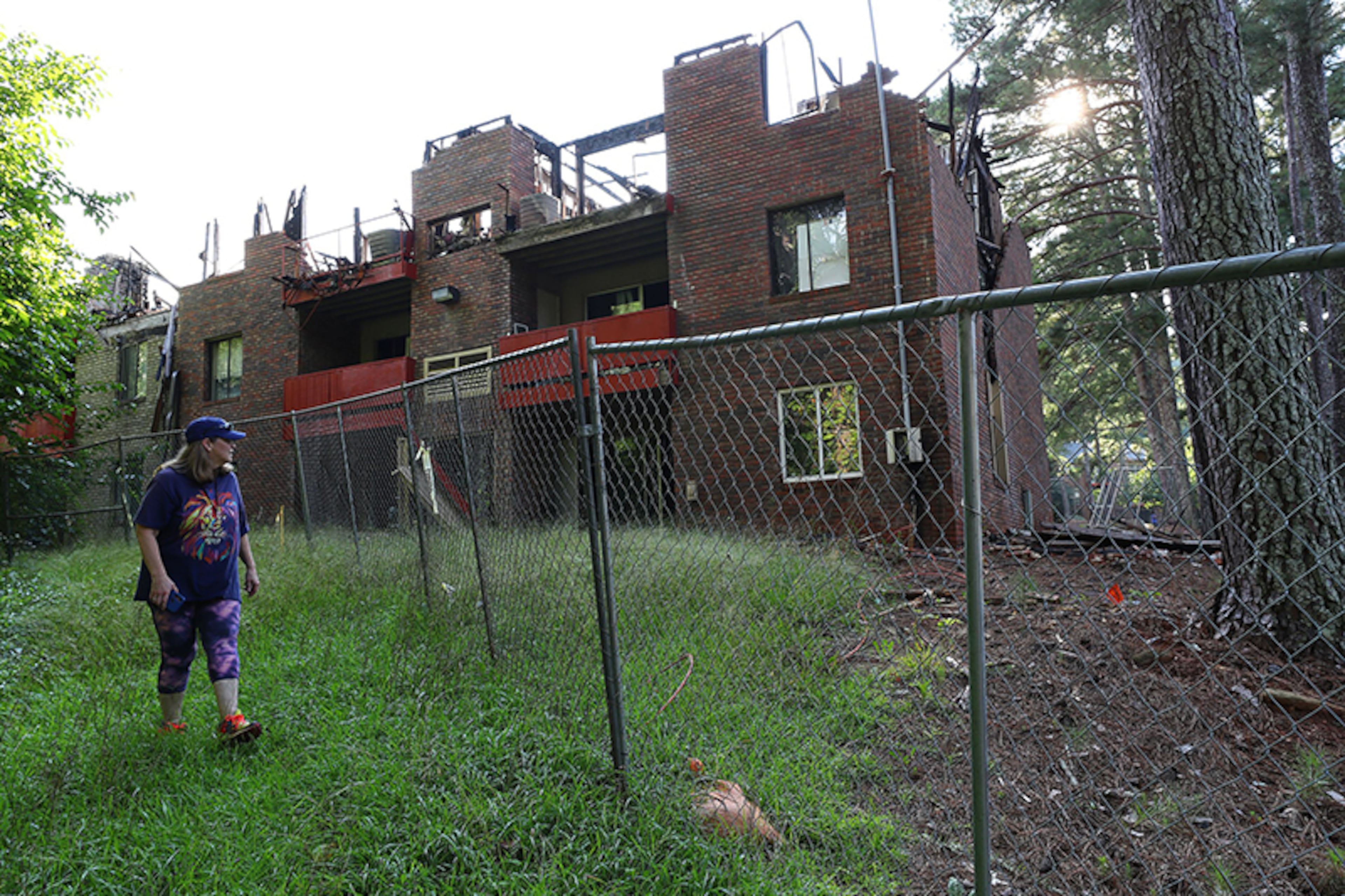Issues to watch in the 2023 session

BUDGET AND TAXES
Gov. Brian Kemp and lawmakers begin the 2023 session on a bit of a financial roll: Tax collections have been up almost every month for the past few years, with record revenue allowing for record state spending.
But with the possibility of a recession looming this year, Kemp and the Republican-led General Assembly will take a more conservative approach on state finances than they did last year, when an election-year spending spree brought pay raises for more than 200,000 teachers, state and University System of Georgia employees, a tax rebate, boosted agency budgets and a cut in state income tax rates.
Since the state ended fiscal 2022 with a $6.6 billion surplus, lawmakers will take up Kemp’s proposals to return about a third of that excess to Georgia taxpayers. The traditional areas of big state spending, such as education and health care, will see more money again because of rising costs.
On the tax front, lawmakers traditionally consider a long list of special-interest tax breaks each session, but the leaders of the committees that take up those bills have pushed for increased reviews of previous tax breaks and may be a little less willing to approve the pitches lobbyists make each year. — James Salzer
Georgia legislative session 2023
- 5 bills to watch in the final days of the Georgia legislative session
- Check the status of key legislation: AJC Bill Tracker
- Issues to watch in the 2023 session
- Players to watch in the 2023 General Assembly session
- Georgia Legislative Navigator from the AJC - Track bills, info on legislators
ABORTION
Georgia lawmakers gather this week for the first time since the U.S. Supreme Court overturned Roe v. Wade, the nearly 50-year-old decision that guaranteed a constitutional right to abortion, and the state’s 2019 abortion law banning most abortions once a doctor can detect fetal cardiac activity took effect.
Republican legislative leaders say they’re unaware of plans to pursue additional restrictions on abortion, but Democrats said they are bracing themselves for what’s ahead.
An attempt to require pregnant women to see a doctor in person before being able to obtain mifepristone, the abortion pill, failed to get final approval last year. The bill would have also banned the medication from being sent through the mail. A doctor would have to perform an ultrasound before the drugs could be prescribed and schedule a follow-up visit. Abortion rights advocates said they expect that bill to return.
Anti-abortion activists said they plan to target — if not this year, in the future — what they call “loopholes” in Georgia’s abortion law. The activists say it’s discriminatory to allow pregnancies to be terminated based on how the child was conceived, such as in the case of rape.
Georgia’s law allows abortions after the detection of fetal cardiac activity and up until 22 weeks of pregnancy in cases of rape or incest. Victims would have to have reported the incident of rape or incest to the police to qualify for a later abortion. Abortions past 22 weeks could also be performed if the fetus has congenital or chromosomal defects and would not survive. — Maya T. Prabhu

ELECTION LAWS
Lawmakers might change or even eliminate runoff elections after last year’s runoff brought long lines during early voting and a victory for U.S. Sen. Raphael Warnock, the third straight runoff win for Democratic Senate candidates in Georgia.
Opponents of runoffs say they’re expensive and unnecessary, with almost every other state in the nation deciding races by whichever candidate wins the most votes in the general election, even if they earn less than 50% of the total in a multicandidate race. Only Georgia, Louisiana and Mississippi require another election after a general election when no one wins a majority.
Runoffs have also become less reliable for Republican candidates, who almost always won these overtime races before 2020. That trend has changed.
Legislators in the Republican-controlled General Assembly are discussing several options, but neither party’s leaders have settled on a preference.
One possibility would be to elect whichever candidates lead in the general election, even if they don’t reach a 50% threshold. Another proposal would create a system called instant-runoff voting, in which voters would pick their second-choice candidates in the general election, and those votes would be counted if a voter’s first choice doesn’t finish among the top two candidates.
A third option sought in a bill introduced by Democratic legislators would keep runoffs but add a second week of early voting. — Mark Niesse

SPORTS BETTING
Backers of online sports betting are heading into this year’s legislative session with high hopes that the General Assembly will finally pass legislation to make such gaming legal in Georgia.
But disagreement over where the tax revenue generated from sports betting, or any legalized gambling, should go has held the legislation up for years.
Options that have been considered include using the revenue to bolster the merit-based HOPE scholarship, paying for needs-based college scholarships, and funding rural health care and broadband efforts across the state.
Expanding gambling in Georgia is difficult to do because it requires amending the state constitution — allowed only once two-thirds of each legislative chamber agree to place it on a ballot and a majority of voters approve the change.
Plus, there are rumblings that attempts to allow horse racing or casino gambling might return to the Capitol. Sports betting companies and sports teams have hired top lobbyists to push the bills in hopes of expanding gaming beyond the state-controlled lottery. — Maya T. Prabhu

RENEWABLE ENERGY AND ENVIRONMENT
Georgia lawmakers may consider legislation addressing electric vehicles, solar power and protections for the Okefenokee Swamp in 2023.
A legislative panel spent months studying ways to encourage businesses to install electric-vehicle chargers across the state. Lawmakers will likely consider allowing convenience stores and other businesses to sell electricity by the kilowatt hour, instead of by the minute or hour.
The move would allow the state to tax the electricity used by vehicles — a potential replacement for motor fuel taxes, which are expected to wane in coming decades as fuel economy improves and electric vehicles proliferate. The money would be used to pay for highway construction and maintenance.
The solar power industry is expected to push for legislation encouraging rooftop solar installation and “net metering” — a billing mechanism that allows customers with solar panels to be compensated by their utility for producing extra electricity, increasing savings. Amid opposition from Georgia Power, the state Public Service Commission recently opposed expanding net metering to more customers.
Lawmakers also will likely consider a bill that would prevent new mining permits from being issued along the Okefenokee Swamp’s eastern boundary. An Alabama company has long sought permits to mine in the area, less than 3 miles from the swamp. The company says the mine will not harm the swamp, though scientists from the federal government and the University of Georgia disagree. — Drew Kann and David Wickert

EDUCATION
They’ve been trying for years with no real success, but lawmakers say they are serious this time about changing the way the state pays for K-12 education.
The Quality Basic Education formula was created by law in 1985 — long before digital devices became a staple in classrooms and mental health issues spiraled.
It dictates how state education funds are divvied among Georgia’s 180 school districts. This year, it accounts for about $11 billion, roughly a third of the state budget.
The Georgia Senate reviewed the formula this summer, and the leader of the study committee, Sen. Mike Dugan, R-Carrollton, said he will introduce legislation to amend it. State School Superintendent Richard Woods supports an overhaul, saying he wants to “modernize” the formula.
Besides funding, lawmakers may also look at building security, student counseling, teacher licensure costs and pandemic-related learning loss in the early grades. — Ty Tagami
HEALTH CARE
As in previous years, lawmakers expect to take up the state’s Certificate of Need law, or CON, a law that protects Georgia hospitals from new competition. To open a new hospital service, a company must get permission from the state certifying there is a need for the new facility.
Every year hospitals battle to protect CON, and every year GOP lawmakers push back, saying hospital monopolies result in increased prices and fewer services for Georgians.
In the leadership change in the House, one of the biggest opponents of the law, Rep. Matt Hatchett, is about to take the reins of perhaps the most powerful committee, Appropriations, which oversees the state budget.
“I would think something about CON will come up,” Hatchett said, though he said it may be along the lines of “modifying” CON rather than full-on repeal. — Ariel Hart

APARTMENT REGULATION
Dangerous apartment complexes will come up at the Gold Dome after an Atlanta Journal-Constitution investigation showed vast problems with chronic violence and unlivable conditions.
The AJC’s “Dangerous Dwellings” series found that tens of thousands of metro Atlantans live in these persistently dangerous complexes. Combined, they account for at least 281 homicides and 20,000 serious crimes over the past five years.
Some suburban leaders have been eager to reconsider or change their ordinances, but coaxing Georgia’s landlord-friendly Legislature to act is a much steeper challenge. The last successful bid to shore up renter protections took place in 2019, with a bill that barred landlords from retaliating against tenants who report poor living conditions. The battle was so bruising that legislators have balked at taking up the issue again.
Expect the return of last session’s proposal by state Rep. Mesha Mainor, D-Atlanta, requiring complexes to post crime statistics on their websites. It stalled in the Senate after amendments that pushed the workload onto local law enforcement. — Willoughby Mariano



